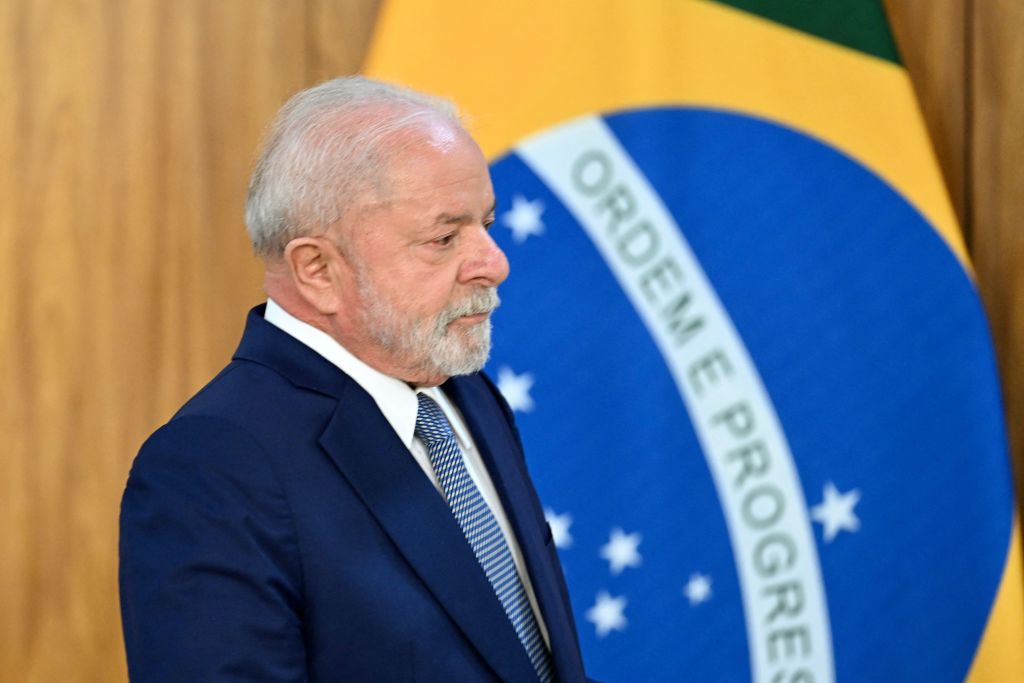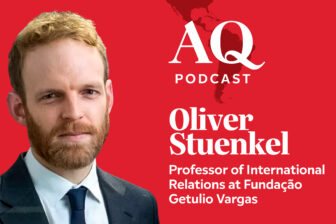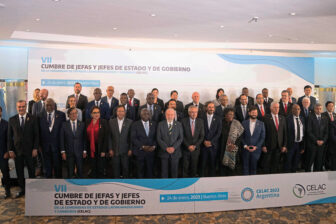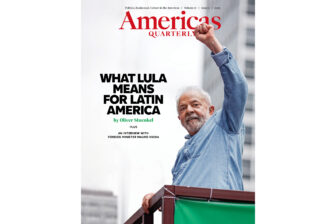SÃO PAULO — When President Luiz Inácio Lula da Silva welcomes South American heads of state for a “retreat” in Brasília on May 30, his first challenge will be to cheer up the participants: Virtually all the presidents face enormous domestic problems and several are fighting for their political survival. The host himself is facing fierce opposition that complicates his life in Congress as well as Western backlash over his controversial stance on the war in Ukraine.
Here is where the invitees are at: In Ecuador, embattled President Guillermo Lasso won’t even stand for reelection in three months. Paraguay’s outgoing leader Mario Abdo is deeply unpopular. Bolivia’s Luis Arce and Argentina’s outgoing Alberto Fernández seem powerless to revert the meltdown of their respective economies.
Even one-time regional darlings are in tough positions. Uruguay’s President Luis Lacalle Pou is battling rising crime and corruption scandals, Chile’s Gabriel Boric and Colombia’s Gustavo Petro are severely weakened, and Peru’s Dina Boluarte faces the risk of being criminally prosecuted once she loses her presidential immunity over her role in state repression against protesters. Quite paradoxically, among the invitees to the summit, Venezuela’s dictator Nicolás Maduro, who recently completed a decade in power, may be the one least concerned about political turmoil or governability.
What can Lula achieve in such a depressing regional context? For starters, the meeting itself is good news. While groundbreaking visions for the future of South America or announcements to promote regional integration are unlikely to emerge, even a basic dialogue between heads of state is genuine progress after Brazil largely retreated from its neighborhood during the Bolsonaro years. Even with Lula back in the presidential palace and most leaders in the region situated on the left side of the ideological spectrum, however, tensions remain.
Ties between Peru and Bolivia remain problematic after Boluarte banned, in January, Bolivia’s former President Evo Morales from Peruvian territory after he participated in anti-government protests there. In late March, Peru announced a “definitive recall” of its ambassador in Bogotá over what it considers Colombia’s undue interference into Peru’s domestic affairs. Maduro, all the while, has repeatedly lashed out against Chile’s president after Boric called for “more democracy” in Venezuela.
Yet merely establishing a platform to manage such disagreements can go a long way. After all, it is often forgotten that Latin America is no stranger to geopolitical tensions, as shown by the brief war between Ecuador and Peru in 1995 or the Andean Crisis of 2008, when Venezuela mobilized troops in response to Colombia’s incursion into Ecuadorean territory to kill a FARC guerilla leader.
While Lula signaled to leaders in his invitation that he would like to discuss deeper integration in areas such as infrastructure, health and defense—three laudable goals—bilateral discussions will probably focus on something far more immediate: the need to have a plan in place if the Argentine and Bolivian economies collapse. While Lula still publicly talks about drumming up support for Buenos Aires, Brazil’s Economy Ministry has already begun, behind the scenes, discussing such a scenario with its regional counterparts.
Institutionalizing a yearly meeting would be particularly important considering that ideological divergences are likely to increase in the region in the coming years. Both in Argentina’s general elections in October and in Chile in 2025, the far-right seems to have a real shot at winning the presidency. Reviving the Union of South American Nations (UNASUR), a regional talking shop created in 2008 that soon lost relevance when right-wing governments disembarked, will be relatively easy, but the challenge will be to assure that UNASUR 2.0 will be more resilient to the ideological swings that are inevitable in any democratic regime—and which, considering deepening polarization, can be expected to become more pronounced. To do so, focusing on technical cooperation—e.g., joint planning for the next pandemic; strengthening coordination of refugee policies and strategies to combat deforestation; and reducing bureaucratic hurdles to South American businesses that seek to expand regionally—is likely to be more promising than grand visions that are more prone to be rejected by future leaders on the other side of the aisle.
Brazil’s President Lula can be expected to be vilified by the opposition for welcoming Nicolás Maduro to Brasília. While Lula can certainly be criticized for not speaking out more against repression in Venezuela, his decision to reestablish diplomatic ties and to invite Maduro is, above all, a pragmatic one that is largely in tune with the West’s acceptance that its strategy of recognizing Juan Guaidó as interim president has failed and that Maduro is here to stay. Until about the time of Hugo Chávez’s death, Venezuela’s neighbors might have had a chance to pressure Caracas to reverse its autocratic crackdown. Now, even the most fervent believer in Brazilian regional leadership will readily recognize that, after a decade of near non-stop domestic turmoil, Brazil currently lacks the clout to have much of a say in its neighbors’ domestic affairs.
Rather than imposing a vision about the future of South America, Brazil’s president can gently try to steer debates and hope that the meeting on May 30 is the return of a permanent dialogue among South American leaders. And it could also be a welcome opportunity for Lula to change the subject of the headlines, which have been dominated by criticism over his rhetoric on Ukraine and, despite a first win vis-à-vis the fiscal framework, the hard battles he is facing in the legislative front at home.
For more on Lula’s foreign policy, listen to this episode of The Americas Quarterly Podcast:
Listen to this episode and subscribe to The Americas Quarterly Podcast on Apple, Spotify, Google and other platforms








